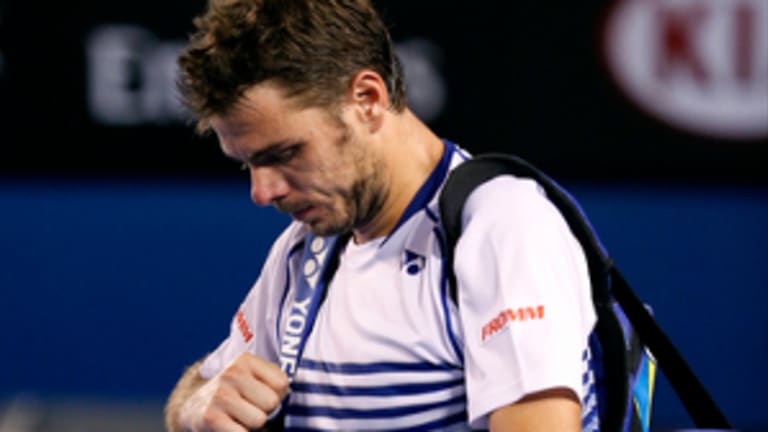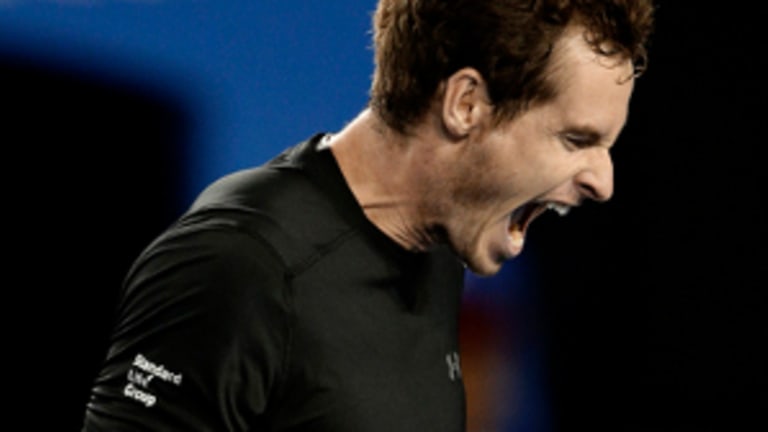On Thursday, in picking Novak Djokovic to win his semifinal over Stan Wawrinka at the Australian Open, I sang a few praises for Stan before closing with these two sentences: “But Djokovic is still Djokovic. Even when he’s not the very best version of himself, he usually wins anyway.”
In American football terms, Djokovic is the Oakland Raiders of old, a crew of rough-edged competitors whose slogan was “Just win, baby.” In un-American football terms, he’s the Germans; as the famous quote goes, “[Soccer] is a simple game. Twenty-two men chase a ball for 90 minutes and at the end, the Germans always win.”
Always, of course, is something of an exaggeration, both in the case of the Germans and the case of Djokovic. But when it comes to the tennis player, the concept has been hard to refute for about four years now. Djokovic gets pushed behind the baseline, misses shots he should make, gives back breaks when you think he has the momentum, yells at his coach, smashes his racquet, and hangs his head as if all is lost. Then, after four or so hours of this, you see him walking to the net as the chair umpire says, “Game, set, match, Djokovic.”
The phenomenon was much in evidence in his 7-6 (1), 3-6, 6-4, 4-6, 6-0 win over Wawrinka. Expectations were high for this one; these two had split five-set classics in Australia in 2013 and 2014, and both times the winner had gone on to hoist the champion’s trophy. But if those matches were heavyweight throwdowns, this was a fight that went 15 rounds because neither guy could land a punch. The winner-to-error count has never been pristine when they face off, but it was especially ugly this time: Djokovic’s was 27 to 49, Wawrinka’s 42 to 69. Djokovic in particular struggled to make any headway from the baseline; as the fifth set began, he had connected on just one backhand winner all night. He didn’t hit any winners at all in the fourth set.
“I didn’t not play on the level I intended before the match,” Djokovic said with some understatement. "I’m proud of the fighting spirit I had, but the level of performance was not where I wanted it to be.”

